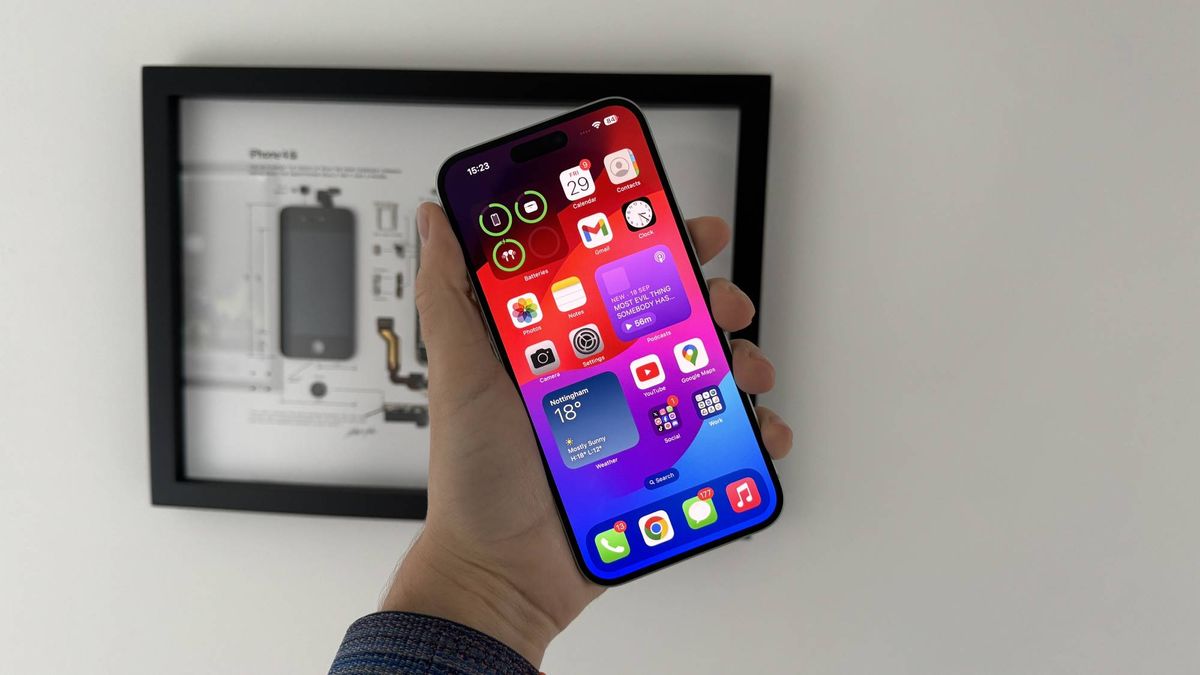
When it comes to assessing the state of your overall health, you may look to your skin, hair, or nails (or all of the above) first. But it’s important to pay attention to your pout, too, as your lips can tell you more about your health and well-being than you realize, according to Dr. Annie Gonzalez, M.D., FAAD, board-certified dermatologist at Riverchase Dermatology.
Our outside environments can take a serious toll on the skin, particularly the lips. This is because there are actually two distinct kinds of skin on our lips — the outside part you put lipstick on is called the vermillion, and the inner, wet part is called the mucosal lip, according to the PMFA journal. The vermillion doesn’t have the sweat or oil glands the rest of our skin does, which is why it dries out and gets cracked more often than the rest of your body.
“While not every new symptom regarding your lips is necessarily concerning, some serious illnesses present signs through the lips,” Gonzalez tells Bustle. “It is advised to keep an eye on your lips to see if they change color, texture, or size. If anything about your lips seems out of the ordinary, make an appointment with your dermatologist to receive a medical opinion.” To keep your pucker in tip-top shape, Gonzalez recommends staying hydrated and carrying around (and reapplying) lip balm. She also suggests seeing a doctor if any lesions aren’t healing since it’s a major red flag.
But sometimes no matter how well you maintain your lips, problems can still arise. If you find that your lips are appearing abnormal — say, constantly dry and cracked or even pale or white — there could be something more serious looming. Below, see what six common lip issues mean.
1. Dry Lips
You’ve likely experienced dry lips at one time or another. Dr. Susan Massick, a board-certified dermatologist at The Ohio State University Wexner Medical Center, tells Bustle that it is the most common illness that affects the lips. “When your skin lacks moisture, it becomes dry — same thing happens on your lips, and they will feel dry and chapped,” Dr. Massick says. “Chapped lips can be made worse when people bite or peel the skin off the lips or frequently lick the lips in an attempt to moisten them. In fact, saliva does not moisten the lips — it actually makes them more dry.”
This symptom is usually caused by basic dehydration or extreme and drying weather. If chugging H2O or keeping them moisturized with plain emollients doesn’t make the problem go away, the discomfort may be caused by an allergy or contact dermatitis, aka irritation from an external source.
“Lip-licking dermatitis can occur as a result frequent licking of the skin and the irritation to the skin from the saliva,” Dr. Massick says. If you’ve ever wondered, ‘Why are my lips so red?’ this could be the culprit. “Some people have sensitivity to lip balm ingredients and this can lead to dry, red and irritated lips. People should be particularly careful if the lip balm that they use stings when they apply it — this can actually make things worse and more inflamed.”
If you have perpetually parched lips, try not to lick them no matter how sexy it looks, as saliva may cause them to peel more.
2. Cracking In The Corners
Developing cracks in the corners of your mouth can be common, albeit unpleasant. But what do prolonged cracks mean about your health? These cracks can be caused by a number of things. For starters, you could be experiencing a condition called acnitic cheilitis (“cheilitis” means lip inflammation), where cracks are “precancerous changes to the lip usually from chronic sun exposure which runs the risk of skin cancer if left untreated,” Massick says. “Patients will often notice persistently dry, scaly patches that never heal despite use of moisturizers.”
Angular cheilitis is another condition in which painful sores form at the corners and sometimes insides of your mouth. They can be caused by malnutrition or fungal infections (and can be treated with an anti-fungal cream). Down’s Syndrome, diabetes, and auto-immune diseases like Crohn’s disease or Sjögren’s Syndrome can increase your risk of getting angular cheilitis, as can certain vitamin deficiencies (“particularly vitamin B and zinc deficiencies,” says Massick).
3. Cold Sores
Cold sores are incredibly common and caused by the herpes simplex virus, which affects billions of people around the world, according to the World Health Organization. Herpes typically shows symptoms right when you first contract it, and then lies dormant in your system, but can be reactivated by stress, lack of sleep, strain on your immune system, sun exposure, or lack of nutrition. Initial signs of oral herpes include contagious sores that form around the mouth and on the lips. These sores can be reappear over time, though some people exhibit no symptoms at all. “The recurring episodes start with a prodromal burning sensation, followed by a small cluster of blisters that ulcerate and crust over the course of one to three days, Massick says. “Healing occurs generally in seven to 10 days.”
Once you feel the tell-tale tingling of a cold sore coming, talk to your doc about a medication to suppress it or a topical cream to heal it. And remember: An active cold sore can spread herpes to others, so be mindful of that before you smooch your significant other or anyone else.
4. Pale Lips Or Discoloration
The color of your pout is super important, Gonzalez tells Bustle over email. If your lips have gone from their typical rosy red to a pale pink, it could signify a vitamin deficiency or even skin cancer. Sudden paleness can be a sign of iron-deficiency anemia, which is when your blood cells don’t have the materials they need to make hemoglobin, according to Johns Hopkins Medicine. Heavy menstrual periods or other blood loss, as well as nutrient loss, can lead to anemia.
“Pale or discolored lips mean that oxygenated blood is not reaching [them]” she says. Blue lips can shine a light on either anemia or possible heart disease, while yellow lips can mean you have problems with your liver.
Dr. Massick says that changes in lip color can also be a sign of skin cancer. Whitening of the skin is “more commonly seen in a squamous cell skin cancer,” while a darkening may be linked to melanoma. No matter what, a change in lip color should be discussed with your doctor.
5. Swelling Or Tenderness
If you’re not using an irritating lip plumper to give your smackers a bee-stung look, a naturally swollen pout could be a sign of an allergic reaction to a cosmetic product or food, explains Gonzalez. Try swapping out whatever you suspect is causing the swelling or tenderness. If it doesn’t go away or impedes your ability to breathe or eat, visit your derm.
Or, as one 2018 study put it, lip-swelling “may be an important symptom of either systemic or local diseases,” from allergies to tumors. A mildly swollen mouth could be due to an allergy to a brand of lipstick, toothpaste, or face wash, and you should swap out the product you suspect is causing the problem. If the swelling doesn’t go away or impedes your ability to breathe or eat, see a doctor as soon as you can.
6. Burning Or Tingling
If you are experiencing burning lips — and you haven’t eaten anything spicy in the last ten minutes — it could be a signal of a greater issue. Burning in the lips, throat, and tongue has been linked to B-12 deficiency, as well as depression and anxiety, and menopause. You can also quite literally burn your lips through sun exposure, which can potentially lead to skin cancer. Massick advises people to “protect the lips from the sun: use sunscreens even on the lips (sunscreen sticks tend to be easy to apply in this location), reapply after a few hours if needed; wear protective hats” to avoid this uncomfortable kind of sunburn. You can also opt for a lip balm that has SPF in it.
As with anything related to your health, if you’re uncomfortable or in pain for more than a few days, or if you notice that your body isn’t healing itself, bring your symptoms to your doctor. “I would recommend seeing a dermatologist if you notice a change in the lip that persists over four weeks,” Massick says. For most cases of dry lips, drinking extra water and staying extra moisturized should be enough to get your pout back in business, but it’s always helpful to rule out any underlying issues.
Expert:
Dr. Susan Massick, MD, a dermatologist at The Ohio State University Wexner Medical Center
Dr. Annie Gonzalez, M.D., FAAD, board-certified dermatologist at Riverchase Dermatology
Studies Referenced:
Błochowiak, K. J., Kamiński, B., Witmanowski, H., & Sokalski, J. (2018). Selected presentations of lip enlargement: clinical manifestation and differentiation. Postepy dermatologii i alergologii, 35(1), 18–25. doi:10.5114/ada.2018.73160
Buljan D., Savić I., Karlović D. (2008). Correlation between anxiety, depression and burning mouth syndrome. Acta Clin Croat. https://pubmed.ncbi.nlm.nih.gov/19388467/
Parveen D., Kamal R.,Kumar M.,Niti M., Gupta R., Chaudhary K. (2013). Burning Mouth Syndrome and Menopause. Int J Prev Med. https://www.ncbi.nlm.nih.gov/pmc/articles/PMC3570906/
This article was originally published on





